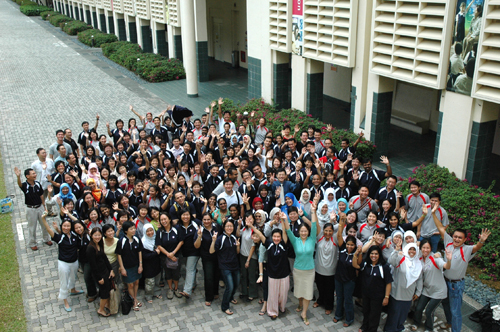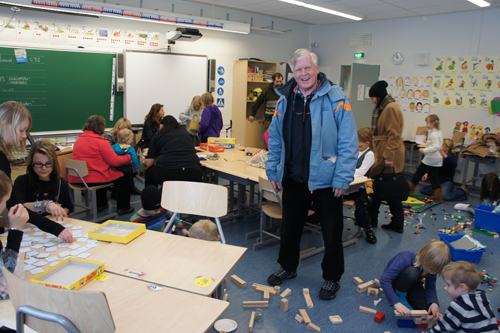“La nueva China está fuertemente haciendo para bien,” proclamado mi gran gran tío George E. Morrison (Los Tiempos de la Ciudad Nueva York feature article, 1912) que asesoró a los líderes chinos durante la formación de la primera República. DR. Discursos de Morrison sobre la visión de sus amigos chinos a la vuelta del siglo 20 me recuerdan a las declaraciones de Henry Kissinger sobre la determinación de China para continuar su notable crecimiento económico en su nuevo libro, En cuanto a China. Presidente Obama describió recientemente a China como un “fuerte, miembro próspero y exitoso de la comunidad de naciones.” And educators will not forget Education Secretary Arne Duncan referring to Shanghai ranking #1 on PISA, the global standardized academic test, as a “wake-up call” for education reform in the American system.
Mientras tanto, en China, the national newspapers published the comments of a Chinese mother passionately complaining about the long hours her child was spending on school work. Is this a nation of Tiger Mom test takers who only memorize what teachers and textbooks say, or is this also a nation of creators and innovators?
I had the great honor of interviewing the highly esteemed Professor Minxuan Zhang, director-general of the Center for International Education Studies, Ministerio de Educación, De China, and national project manager of PISA.
What kind of education system will permit China to have the human skills to compete globally?
I do not think there is one answer to your question. Different countries require different systems. One kind of education system cannot cover all the people skills. In nature, we have various kinds of trees and flowers. Del mismo modo, hay muchos tipos de sistemas de educación que será viable para una determinada cultura, situación económica y la historia social. En China, tenemos varios tipos de subsistemas. Por ejemplo, en Shanghai, tenemos un sistema adecuado para un área metropolitana. He trabajado en nuestras zonas rurales, demasiado. Tenemos sistemas que son más adecuados para ellos. Por supuesto, en nuestro sistema de educación general, existen características comunes.
Desde mi experiencia personal de trabajar en China, un sistema educativo debe prestar atención a todos los estudiantes. Como nación, we cannot rely on a few elites. All the people in a society need to feel that they are helping that society. Government must ensure all people have a good education. This is very important to the Chinese people. My experience in other countries, even in poor countries, is that you can find good schools, but only for elites.
Do you believe Chinese standardized tests measure the broad range of your students’ habilidades?
We have a long history of testing in China. In Old China and perhaps even now, todavía tenemos la tradición de que seleccionamos a los mejores estudiantes de las pruebas. Pero la prueba es sólo una manera. Se llega al final de la educación. Si queremos construir un buen sistema, no sólo podemos confiar en la prueba al final del aprendizaje. Prueba implica que el estudiante haya terminado el sistema educativo. Lo más importante no es sólo para ver los resultados de las pruebas, pero que prestar mucha atención al proceso educativo. El proceso de la educación es mucho más importante que la prueba.
Are there other capabilities that we should also be evaluating?
Testing is an oversimplified way to check educational results. Education is not just about knowledge. It is also the process of socialization of the individual. There are other important elements such as social responsibility, personal potential in arts and the fine arts, how a student handles himself in relationships with other people, how students handle their work. Those kinds of skills and capacities are very important, sometimes even more important than subject testing.
Desde una perspectiva más amplia, does China’s definition of educational excellence take into account the quality of life of individuals and society?
In the Chinese culture, we have two kinds of perspectives on educational excellence. One is that students should learn more knowledge and skills. En China, because of our heritage and our history, we have always said before you can be happy you must be educated. Learning is the bridge to what you want to do in your future. Si nuestra nación no tenía constructores, hay líderes, hay gente que sirven al país, o servir a la familia, ¿cómo podemos tener un futuro brillante? Pero ahora también tratamos de prestar atención a la felicidad en el proceso de aprendizaje. Queremos ayudar a nuestros hijos no sólo para aprender para el futuro, pero para disfrutar también del proceso de aprendizaje. Este es nuestro desafío, pero intentaremos difícil encontrar el camino a seguir.
Dado que la competencia en educación acelera, estamos arriesgando el bienestar emocional de nuestros estudiantes en el entorno de mayor presión académica?
After the PISA results, we wondered if we could lessen the learning burden of the students. En China, historically we have encouraged students to work hard and even struggle in their learning, but we do not want students to suffer because of education. We talk about not trying to learn all knowledge today. In the future there will be more knowledge. So the most important thing is not our students’ learning achievements today, but is to cultivate our students to have active learning attitudes. High school should not be the most important time. Por supuesto, they are important years, but it is more important to keep students’ interest in learning so that they continue to learn by themselves.
World Wisdom from China
Different kinds of education systems are needed for different cultures, economic situations and social history, among countries and within countries. Education systems should pay attention to all the students, not just the elites. A nation cannot just rely on its elite; todas las personas en una sociedad necesitan sentir que están contribuyendo.
El proceso de la educación es mucho más importante que la prueba de punto final. Este tipo de pruebas implica que los estudiantes hayan terminado de aprendizaje. Excelencia educativa es sobre el conocimiento y la habilidad, pero también se trata de la socialización del individuo, sobre el cultivo de los estudiantes a tener intereses de aprendizaje activo para el resto de sus vidas y sobre un fuerte apoyo cultural para la educación.
En La Búsqueda Global para la Educación, unirse C.M. Rubin y reconocidos a nivel mundial los líderes de opinión entre ellos Sir Michael Barber (Reino Unido), DR. Leon Botstein (Estados Unidos), DR. Linda Darling-Hammond (Estados Unidos), DR. Madhav Chavan (India), El profesor Michael Fullan (Canada), El profesor Howard Gardner (Estados Unidos), Profesor Yvonne Hellman (Países Bajos), Profesor Kristin Helstad (Noruega), Profesor Rose Hipkins (Nueva Zelanda), Profesor Cornelia Hoogland (Canada), Señora. Chantal Kaufmann (Bélgica), Profesor Dominique Lafontaine (Bélgica), El profesor Hugh Lauder (Reino Unido), Profesor Ben Levin (Canada), Profesor Barry McGaw (Australia), Sridhar Rajagopalan (India), Sir Ken Robinson (Reino Unido), Profesor Pasi Sahlberg (Finlandia), Andreas Schleicher (PISA, OCDE), DR. David Shaffer (Estados Unidos), Canciller Stephen Spahn (Estados Unidos), Yves Theze (Lycee Francais EE.UU.), Profesor Charles Ungerleider (Canada), Profesor Tony Wagner (Estados Unidos), Profesor Dylan Wiliam (Reino Unido), Profesor Theo Wubbels (Países Bajos), y el profesor Michael Young (Reino Unido) a medida que exploran las cuestiones de educación cuadro grande que todas las naciones se enfrentan hoy. La Búsqueda Global para la Educación Comunitaria Página
C. M. Rubin es el autor de dos ampliamente leído serie en línea por la que recibió un 2011 Premio Upton Sinclair, “La Búsqueda Global para la Educación” y “¿Cómo vamos a Leer?” Ella es también el autor de tres libros más vendidos, Incluido The Real Alice in Wonderland.
Figa C. M. Rubin en Twitter: www.twitter.com/@cmrubinworld






Comentarios recientes